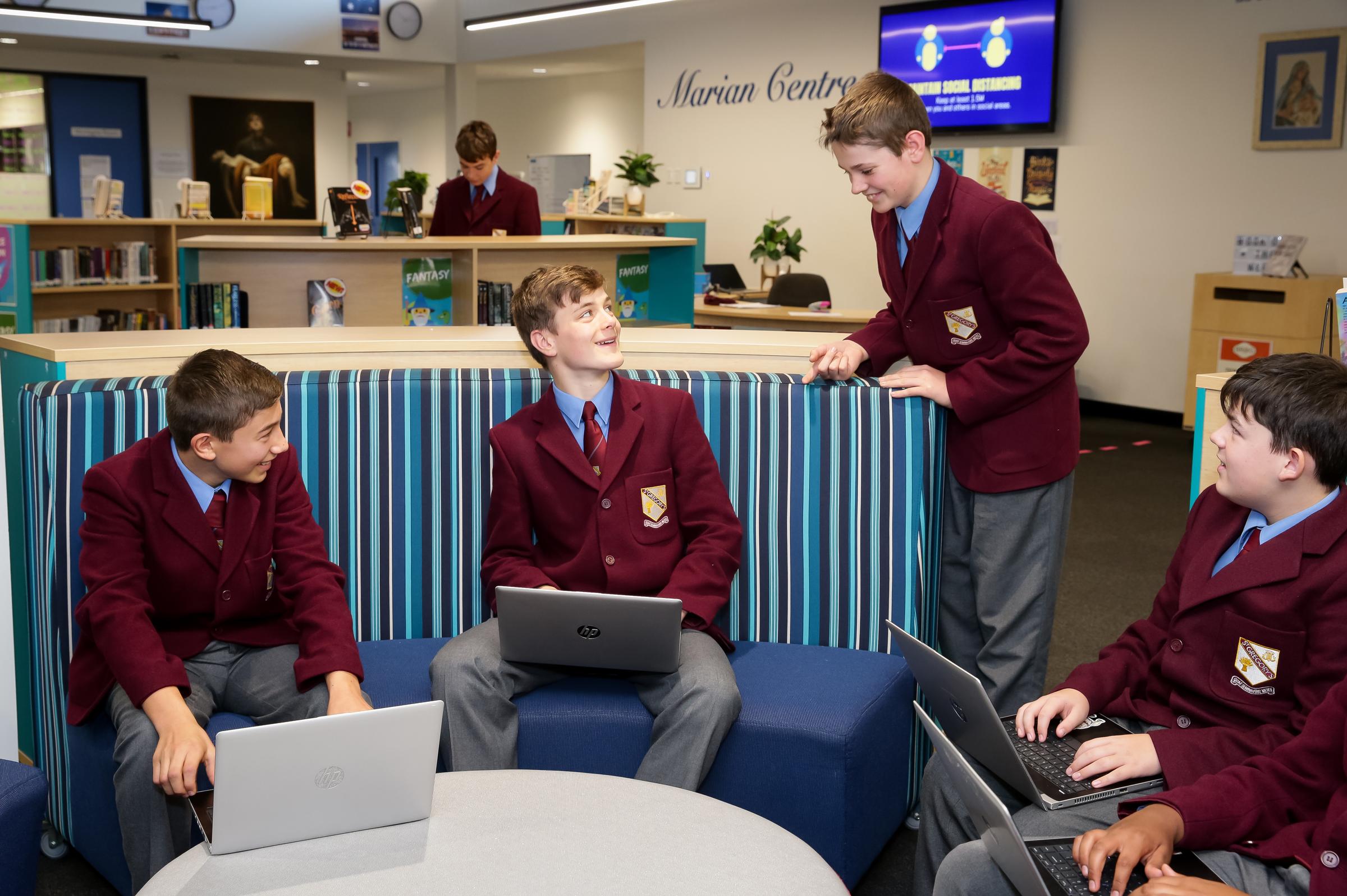Teaching & Learning in the Senior School
Mrs Louise Millar

Teaching & Learning in the Senior School
Mrs Louise Millar
Resilience
Over my last few reports, I have been expressing our community’s growing understanding of the importance of particular attributes that learners need in order to be successful learners, now and into the future. I’m coming across an increasing number of ‘R’ words that really encapsulate those qualities of strong and effective learners; those learners are:
Today I would like to turn my attention to RESILIENCE. This term has become fairly common in the English lexicon because everyone knows they want their child to “have it”. Resilience serves us well throughout our lives and is a strong protective factor when it comes to our social and emotional wellbeing. It is an equally important factor when applied to our learning. Quite simply, it is the ability to recover quickly from challenges. We all know that life, in all its richness, is FULL of challenges.
Educator James Anderson[1] describes learning as being like traversing a landscape; that landscape encompasses all of the world’s knowledge and skill, and learning occurs by moving through that landscape. To do all that travelling, we need to carry a backpack full of the tools that will help us on our learning journey. Every time we encounter an obstacle, we need to pull from that backpack some tools like persistence, the ability to collaborate with others, and the resilience to cope with setbacks. Those who don’t have those tools end up languishing in the lowlands of the learning landscape, unable to climb higher to achieve more complex knowledge and skill. This applies equally to those learners deemed ‘high achievers’ as it does to those who consider themselves ‘low achievers’; each has the potential to climb higher, but each also has the capacity, with a fixed mindset, to set limits on themselves if they don’t have the resilience to cope with failure. “Why try to climb higher if I’ll fail?” they ask. So resilience is important in the continued development of all of our learners.
But how do we “get” resilience? As with all the best things in life, it requires hard work to build up our resilience muscles. It requires an individual’s own inner resourcefulness. This means we can’t ‘give’ our kids resilience by solving their problems for them. We can’t ‘give’ them resilience by going in to bat for them every time they are treated unfairly. The best way we can help our young people to develop their resilience muscles is to give them these gifts:
By ‘challenge’ I don’t mean how to solve a Rubik’s cube. I mean some pretty big ‘life stuff’ that we parents usually take charge of ourselves. I would never suggest that it’s okay for teachers to ‘pick on’ students, but I wonder, for instance, how many parents faced with this complaint from their child spend just as much time teaching them to cope with the situation as they do seeking an apology from the teacher? The apology is really important, but we can’t forget that other step, which is to make such moments ‘teachable’ to our young people. We just have to be careful that we’re teaching them the right lesson! I’d like to think that at St Greg’s, this is something parents and teachers can do in partnership. After all, if our students must deal with difficulties, and fail, isn’t school about the safest place to try it?
A week ago, Her Excellency the Honourable Margaret Beazley AC QC, Governor of New South Wales, penned a letter to Year 12 students. In that letter, her focus was on the resilience that our young people have shown this year. She recognised that “One of the important goals of education is to prepare you for life’s challenges.” She applauded students in NSW for the fact that this year they have managed to cope with one of those challenges in COVID-19. Let’s make such challenges the basis of life-long lessons for our young people that will stand them in good stead once their teachers, and their parents, are no longer around to help them out every day!
I include the full letter from Margaret Beazley in the linked attachment.
Mrs Louise Millar
Director of Teaching and Learning
[1] Anderson, J. (2019). The Learning Landscape: How to increase learner agency and become a lifelong learner.